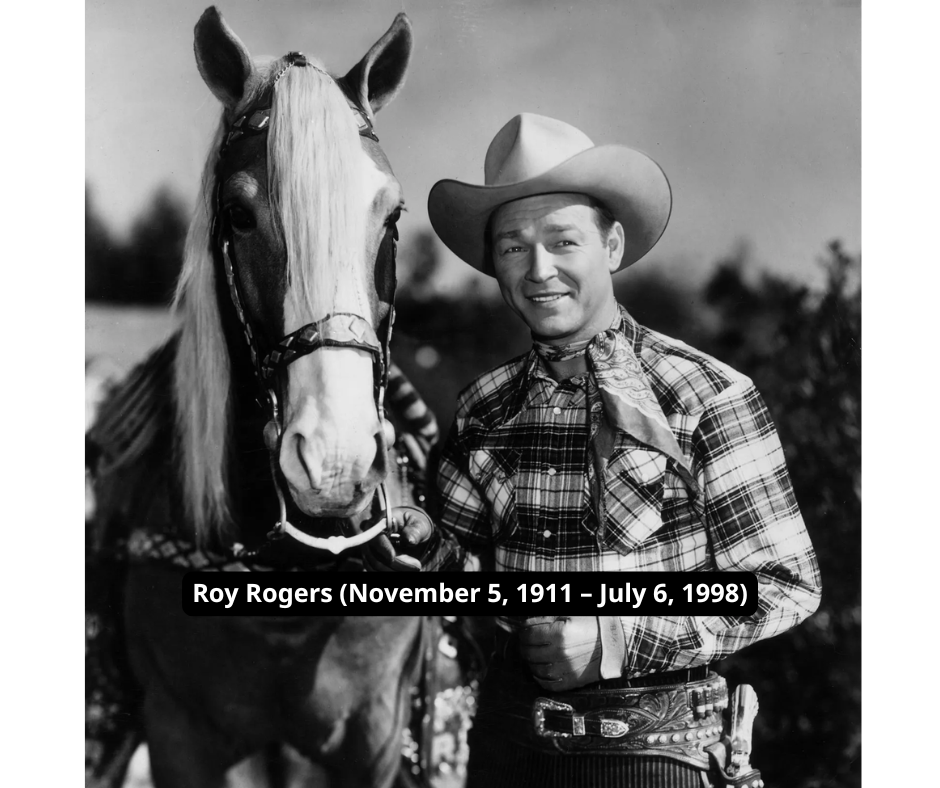LDT. Roy Rogers Remembered as America Celebrates the Legacy of the “King of the Cowboys”
HOLLYWOOD, Calif. — More than a century after his birth, Roy Rogers (November 5, 1911 – July 6, 1998) remains one of the most enduring and beloved figures in American popular culture. Known worldwide as “The King of the Cowboys,” Rogers built a career that spanned radio, film, television, and music — becoming an icon of the classic American West.

Rogers first rose to prominence in the 1930s and 1940s as the star of a long string of Western films that captured the imagination of audiences seeking adventure, optimism, and moral clarity. With his signature white Stetson, his warm baritone voice, and his legendary horse Trigger, he embodied the idealized frontier hero: brave, fair, humble, and unwavering in his sense of justice.
By the 1950s, Rogers’ reach expanded into households across the country through The Roy Rogers Show, a hit television series that cemented his place as a family-friendly hero. Alongside his wife and longtime partner in entertainment, Dale Evans, Rogers brought Western storytelling into a new era, blending action, music, and heartfelt values that resonated with viewers of all ages.
Rogers was also a celebrated recording artist, earning acclaim for hits such as “Happy Trails,” a song that became synonymous with his legacy and the closing theme to many of his shows. His contributions to entertainment earned him numerous awards and multiple Hall of Fame inductions, including the Country Music Hall of Fame, where he was honored both as a solo performer and as a member of the Sons of the Pioneers.
Even decades after his passing in 1998 at age 86, Roy Rogers’ impact continues to echo through Western cinema, country music, and American nostalgia. His image remains a symbol of a bygone era — one defined by courage, kindness, and the timeless allure of the open frontier.
As fans across generations revisit his films, music, and television appearances, the legend of Roy Rogers endures. The King of the Cowboys may be gone, but the spirit he represented remains forever part of America’s cultural landscape.




